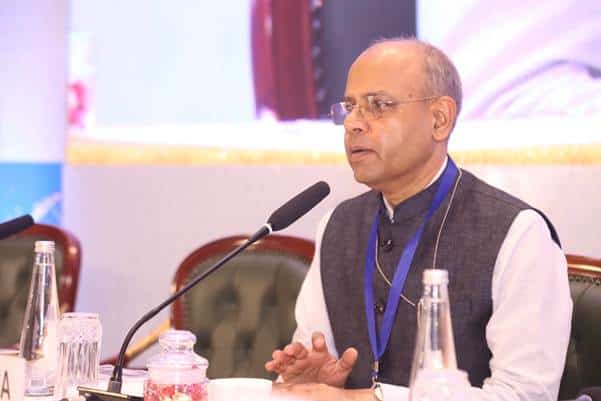The Two-day National Stakeholder Consultation Workshop on the Policy Framework

The two-day National Stakeholder Consultation Workshop on the “Policy Framework for Operation & Maintenance (O&M) of Rural Piped Water Supply Schemes” wrapped up today, organized by the Department of Drinking Water and Sanitation (DDWS) under the Ministry of Jal Shakti. The workshop brought together senior officials and stakeholders to discuss vital aspects of rural water supply governance. The first day focused on institutional frameworks and community engagement, while the second day emphasized the role of technology in enhancing efficiency and accountability in O&M systems.
Key Discussions on Technology and Governance
The workshop featured significant discussions on how technology can transform rural water supply systems. Secretary of DDWS, Shri Ashok K.K. Meena, opened the second day by highlighting the potential of digital tools in addressing challenges faced in rural areas. He pointed out that mobile phones serve as effective Internet of Things (IoT) sensors, capable of capturing essential data from both consumers and service providers. Meena referenced initiatives such as the JAM Trinity and the JJM Dashboard, which underscore the importance of data-led governance. His remarks set a collaborative tone for the day, encouraging participants to explore innovative solutions for rural water management.
The day included presentations that reinforced the necessity of a consistent attitude and behavior for effective rural transformation. Shri Vipul Ujjwal from the Ministry of Panchayati Raj emphasized the MAP model (Motivation, Ability, Prompt) as a framework for fostering behavioral change at the grassroots level. The discussions highlighted the pivotal role of Panchayati Raj institutions in delivering sustainable and accountable services.
Thematic Sessions on Digital Innovations
Participants engaged in thematic sessions that showcased various digital innovations and institutional strategies aimed at improving rural water governance. The first session, titled “From Data Streams to Decision Engines,” illustrated how technologies like real-time monitoring and AI-based predictive maintenance can enhance water supply governance. These innovations help anticipate breakdowns, detect faults, and ensure equitable distribution of resources. The discussions emphasized that technology is not merely an addition but the backbone of governance in O&M.
Another session focused on harnessing Geographic Information Systems (GIS) and space technology for data-driven governance. Teams from Madhya Pradesh and other organizations presented their pioneering applications of GIS and satellite imagery. Madhya Pradesh showcased its Jal Rekha platform for real-time monitoring, while other states highlighted their efforts in groundwater sustainability and community engagement through GIS solutions.
Strategies for Sustainable Water Resource Management
The workshop also addressed the critical issue of source sustainability in water supply systems. A proposed multi-tier institutional model aims to enhance the implementation of Integrated Water Resource Management (IWRM) and community-centric governance. States like Tripura and Uttarakhand shared their initiatives for groundwater recharge and spring rejuvenation, respectively. The discussions emphasized the importance of collaboration among various agencies to ensure long-term functionality of water sources.
Additionally, the final session showcased advancements in IT applications across states and union territories. Participants learned about the growing ecosystem of digital applications, including digital billing systems and water quality dashboards. Key insights revealed that while many states have made progress in digital payments and consumer databases, there remains a significant opportunity for improvement in water quality management systems.
Conclusion and Future Directions
In his closing remarks, Shri Kamal Kishore Soan, Additional Secretary and Mission Director of DDWS, commended the participants for their active engagement and contributions. He expressed optimism that the collaborative spirit of the workshop would lead to a robust and future-ready O&M framework. The event concluded with a collective call to action, emphasizing the need for transparency, accountability, and real-time monitoring in rural water service delivery.
As the Jal Jeevan Mission transitions into its next phase, the integration of policy, community involvement, and technology will be crucial in ensuring that every household has access to clean drinking water consistently. The workshop underscored the necessity of leveraging innovative solutions to meet the challenges of rural water governance effectively.
Observer Voice is the one stop site for National, International news, Sports, Editor’s Choice, Art/culture contents, Quotes and much more. We also cover historical contents. Historical contents includes World History, Indian History, and what happened today. The website also covers Entertainment across the India and World.
Follow Us on Twitter, Instagram, Facebook, & LinkedIn

